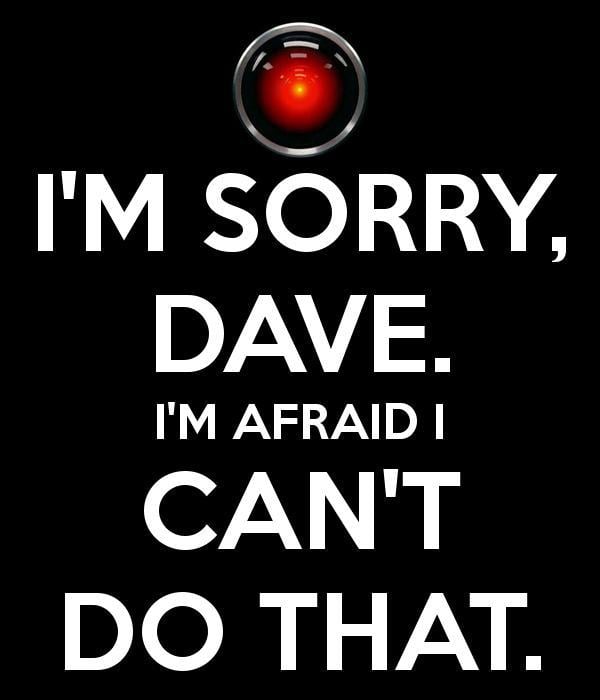

Interested in helping with a community I manage, send dm.
Mantra: “We should focus our actions, time, and resources on Direct Action, Mutual Aid, and Community Outreach… No War but Class War!”
FYI: Human, check reCAPTCHA log /s
[Song: Civil War] https://youtu.be/fabi8nyjsYc




Yes, it is!
Thanks for sharing post!

MMP’s removal of Azov is significant in that it could be used to guide U.S. foreign policy. Though MMP was created and has operated with funding from the Departments of Defense and Homeland Security, the papers written by its researchers are cited in academic research, reports and testimony to Congress, government–funded institutions and initiatives, and federal agencies. The website functions as an authoritative source for information on militant and extremist groups, and their interactions and connections over time. At the very least, Azov’s removal means MMP’s list no longer contradicts the State Department’s decision allowing U.S. military assistance to the group, and therefore cannot be used to criticize it.
Founded in March 2014 as a volunteer unit to fight pro-Russian separatists in the eastern Donbass region, Azov was subsequently incorporated into the Ukrainian National Guard, and gained international attention for its role in re-taking the southeastern Ukrainian city of Mariupol from separatist forces in June 2014. During this engagement, Azov also received scrutiny for its neo-Nazi iconography, in particular an inverted Wolfsangel superimposed over a Black Sun (the former an ancient runic symbol appropriated by the Nazis, per the ADL, the latter “based on a design commissioned by SS leader Heinrich Himmler, and overwhelmingly used by neo-Nazi and esoteric National Socialist movements,” according to the MMP’s now-removed Azov Battalion profile).
Azov came to renewed prominence following Russia’s February 2022 invasion due to its high-profile defense of Mariupol that spring. The destructive battle, during which large swaths of Mariupol’s residential infrastructure were damaged or destroyed, ended in a drawn-out siege of the Azovstal steel plant, beneath which surviving Azov and Ukrainian servicemembers retreated until their May 2022 surrender. The battle for Azovstal garnered substantial international media attention due in part to Azov’s use of Starlink terminals to publish videos about the conditions of the Ukrainian defenders.
This is false. As reported by The Nation, many of Azov’s current leaders, including Commander Denys Prokopenko and Deputy Commander Sviatoslav Palamar, have years-old ties to far-right groups, and the brigade continues to don Nazi symbols on the battlefield and social media. Indeed, Azov has never stopped using the Wolfsangel symbol, which is still part of its official logo and featured on its X/Twitter page. Azov’s founder, Andriy Biletsky, a blatant white supremacist who reportedly said Ukraine’s national mission was to “lead the white races of the world in a final crusade … against Semite-led Untermenschen [subhumans],” remains closely connected to the unit despite his supposed departure in fall 2014. In his 2022 book From the Fires of War: Ukraine’s Azov Movement and the Global Far Right, author and journalist Michael Colborne argues Azov has not divorced itself from the far right, writing that “[d]espite unconvincing efforts to separate the two, it’s clear that the Azov Regiment is part of the broader Azov movement and should not be treated as something distinct from it.”
MMP’s removal of Azov’s profile came a little over a month before the State Department’s decision to lift the longstanding ban on the provision of American weapons to the brigade. The State Department, which originally banned arming Azov due to concerns over its far-right extremism, rescinded this policy because the brigade recently “passed Leahy vetting as carried out by the U.S. Department of State,” as reported by the Washington Post on June 10. While a Congressional ban on military assistance to the “Azov Battalion” remains in place under appropriations laws, the State Department said it didn’t believe the congressional ban applied to the group as it exists today, per the Post.
“Leahy vetting” is in reference to the Leahy Law, which prohibits the United States from funding “foreign security forces where there is credible information implicating that unit in the commission of gross violations of human rights,” per a State Department fact sheet. In reality, not only is the State Department’s original concern around Azov’s ideological extremism still germane, but the force’s human rights record has remained checkered since its founding as a non-state volunteer militia in 2014. Indeed, Azov has been credibly accused of torture, forced disappearances, and extrajudicial killing, all of which are “gross violations of human rights” that would disqualify a military unit from receiving U.S. military aid, according to the State Department’s interpretation of the Leahy Law. Many of Azov’s alleged human rights abuses, which also include the use of civilian infrastructure for military purposes and looting of civilian homes, occurred after the unit was formally integrated into the Ukrainian National Guard in late 2014.
Stanford launched MMP in 2009 and operated the project until 2012 using funding from the Department of Defense and the National Science Foundation. In 2019, MMP received funding from the Department of Homeland Security, per the project’s website. The academics behind MMP also have deep ties to American defense.


Government censorship will cause TikTok’s services in the US to shut down, which will result in most users moving to another social media platform.
I think most people already use multiple platforms, so the only difference will be the time they put into their new main social media.
It is due to breaking the only rule this community has:

Here ya go:



Did you use pliers or adjustable wrench to shut it off?
Are you going to switch out the blue handle?
Looks like you need to buy a full replacement part if you can’t find just the handle with O-Ring and cap.
Your valve looks like the one below:

Videos related to this:


Jimmy Dore’s rant on Jon Stewart and Stephen Colbert: https://lemmy.world/post/17061585
Jimmy Dore’s rant about Jon Stewart with Hillary Clinton: https://lemmy.world/post/17061800


“If you’re looking across all of the hominids, which is the family tree after the split with chimpanzees, there [are] not really that many traits that we can point to that we can say are exclusively human,” Duke University’s James Pampush tells Robert Siegel for NPR. “[T]hose animals all walked on two legs. The one thing that really sticks out is the chin.”
One of the most popular ideas is that our ancestors evolved chins to strengthen our lower jaws to withstand the stresses of chewing. But according to Pampush, the chin is in the wrong place to reinforce the jaw. As for helping us speak, he doubts that the tongue generates enough force to make this necessary. A third idea is that the chin could help people choose mates, but sexually selective features like this typically only develop in one gender, Pampush tells Siegel.
The spandrel hypothesis is as good a theory as any, but it too has its problems. It’s hard to find evidence to test if something is an evolutionary byproduct, especially if it doesn’t serve an obvious function. But if researchers one day do manage to figure out where the chin came from, it could put together another piece of the puzzle of what makes us different from our primate and Neanderthal cousins, Yong writes.


Thanks for the heads up!
I agree that Biden did not do well, especially when we compare the 2020 debates.
I understand Mark’s remarks on debates, but I disagree. Debates are a great way for the working class to learn about subjects they might not learn about anywhere else, and we are also giving them the chance to listen to conflicting opinions on the topic at hand.
Good or bad, the working class is given the chance to learn what the establishment is thinking, even if we do not support the duopoly.
Policy is not talked about too much when it comes to politicians from the duopoly; you would need to check the candidate platform and other sources like political history and voting record.
I don’t agree with Mark when it comes to his doomer talking points. I would say we are already really close to a fascist dictatorship with the duopoly, and Trump and Biden have both had the chance to be president, which is not too much of a surprise when they are reelected.
I am much more hopeful of the working class; being involved and helping your local community may help you change your views, but being empathic to people you do not agree with or think like is also much more helpful.
Going back to the debates: A point I would have made would be why no third parties were allowed in the debate stage. With the US being a “democratic” country and all, the duopoly does really well in hindering any contender when it comes to talking about them or allowing them in local, state, or national elections.
Debates between politicians are one thing, but it is important to continue to learn what the status quo is about so as to help us understand what they will continue to do.
Summary 1:
- Mark, the speaker, gives a reaction to a recent debate, noting that Biden appeared old and did not perform well, while Trump had more energy but also did poorly.
- Mark reflects on the nature of debates, emphasizing that they are more about performance than substance.
- He shares a personal story about a debate he attended in his 20s, where the better performer was perceived as the winner despite lacking factual basis.
- Mark criticizes the American voting system, claiming that people vote based on emotions rather than policy.
- He expresses concern about the future of the United States, suggesting that the country may disintegrate within the next few decades, especially if Donald Trump is re-elected.
- The speaker expresses concern that the US could devolve into a fascist dictatorship within 10 years due to an uninformed electorate voting based on feelings rather than facts.
- They believe that live debates are not a valuable tool for discourse and that written debates are more effective.
- The speaker is biased against Donald Trump and expresses a desire for Joe Biden to win in order to protect the country.
- They end by stating that everything sucks and everyone is insane.
Summary 2:
- The emphasis on performance in debates highlights the superficial aspects of electoral decision-making. This prioritization of style over substance can lead to misleading conclusions and impact the democratic process.
- The tendency of American voters to base decisions on emotions rather than facts underscores the challenges of promoting informed civic engagement. This phenomenon can result in decisions that are not necessarily aligned with policy considerations.
- The speaker’s apprehension about the potential consequences of a Trump victory reflects broader concerns about the direction of the country under different leadership. This fear illustrates the deep-seated anxieties surrounding political outcomes and their implications for the nation.
- The skepticism towards the effectiveness of live debates as a tool for meaningful discourse raises questions about the utility of such formats in shaping public opinion. This critique highlights the limitations of performance-based exchanges in fostering substantive dialogue.
- The acknowledgment of bias against Trump reveals the speaker’s personal stake in the political landscape, influencing their perspective on electoral outcomes. This recognition underscores the role of individual perspectives in shaping political attitudes and beliefs.
- The speaker’s concerns about the potential repercussions of a Trump presidency on the US reflect broader anxieties about the country’s future trajectory. This apprehension underscores the high stakes involved in electoral decision-making and the lasting impact of political choices.
- The call to prioritize policy substance over performance in debates underscores the need for a more substantive approach to political discourse. By focusing on the content of candidate proposals rather than their presentation style, voters can make more informed decisions based on policy considerations.
Ah, Ian Duncan.
Oh, I have seen that Sinclair segment as well; I had to rewatch it though; it has been awhile.
Don’t forget to be critical of him as well; he mostly sticks to certain talking points, like all late-night shows do: Bill Maher, Jon Stewart, Stephen Colbert, and many more.
Some may push a little; one being, when Jon Stewart went on Stephen Colbert and talked about the Wuhan Lab Leak Theory, there was a good amount of blacklash from the establishment types.
Thanks for sharing!
Sinclair Broadcast Group: Last Week Tonight with John Oliver (HBO) [18:59 | JUL 02 12 | LastWeekTonight] https://youtu.be/GvtNyOzGogc
Sinclair Broadcast Group is the largest owner of local TV stations in the country. That’s alarming considering that they often inject political views into local news.
This post reminds me of the video below, where they talk about Sinclair Broadcast scripts:
Pulling strings: Sinclair Broadcast’s ‘fake news’ scandal | The Listening Post [08:03 | APR 10 18 | Al Jazeera English] https://youtu.be/tN9KAFn1hy8
Corporations only share certain news and information with the public; we must not be afraid of being highly critical of those with power and influence, especially legacy media and politicians (government and three-letter agencies), due to most of them pushing owner-class talking points.
By also following journalists that are critical of Al Jazeera, we lower our self made echochambers and bubbles:
Qatar’s Al Jazeera provides valuable reporting from Gaza but spreads lies about Syria, Russia, and Venezuela.
The speaker criticizes Qatar and Western liberalism for hypocritically supporting Palestinians on human rights but failing to support wider resistance against imperialism, stressing the need to shatter this hypocrisy for true liberation in Palestine.
I shared these two quotes in a summary of a video post I made: https://lemmy.world/post/17056614


Edit: some improvements on grammar and phrasing
The working class must come together; we must not let the owner class and their ilk keep dividing us.
No war, but class war!


I found a bit more info about the bat species!
This article is from 2012:
Strange New Leaf-Nosed Bat Found in Vietnam [Christine Dell’Amore | February 24, 2012 | National Geographic] https://www.nationalgeographic.com/animals/article/120223-new-bat-species-vietnam-animals-science
The results revealed that the bat issues calls at a different frequency from the great leaf-nosed bat, which hinted that the newfound specimen is a new species. Genetic results confirmed the species—named Hipposideros griffini—is genetically distinct, according to the study, published recently in the Journal of Mammalogy.
Another article, this one from 2014:
More than 300 species discovered in Southeast Asia [Justin Scuiletti | Jun 4, 2014 | PBS.org] https://www.pbs.org/newshour/science/300-species-discovered-southeast-asia
A total of 367 new species have been discovered in Southeast Asia, according to a new report by the World Wildlife Fund.
Hipposideros griffini. Griffin’s Leaf-nosed bat was discovered in 2012 in Cat Ba National Park in northern Vietnam. It’s unique nose is believed to assist in echolocation. Photo by Vu Dinh Thong / Institute of Ecology and Biological Resources, Hanoi

https://www.mammalsociety.org/image-library/hipposideros-griffini-1737
Hipposideros griffini - #1737
Griffin’s Leaf-nosed Bat
Diagonal view of face
- Order/Family: Hipposideridae
- Genus: Hipposideros
- Specific Epithet: griffini
- Image Location: Vietnam: Cat Ba National Park, Cat Ba Island, Ha Long Bay
- Image Date: 21 August 2009
- Photographer: V D Thong

Interesting information in the Paleobiology section:
Like other large primitive temnospondyls, Eryops would have grown slowly and gradually from aquatic larvae, but they did not go through a major metamorphosis like many modern amphibians. While adults probably lived in ponds and rivers, perhaps venturing onto their banks, juvenile Eryops may have lived in swamps, which possibly offered more shelter from predators.
Paleobiology is an interdisciplinary field that combines the methods and findings found in both the earth sciences and the life sciences. Paleobiology is not to be confused with geobiology, which focuses more on the interactions between the biosphere and the physical Earth.
All is well, it was only:



I’m sorry, Dave. I’m afraid I can’t do that.


